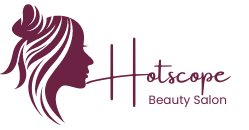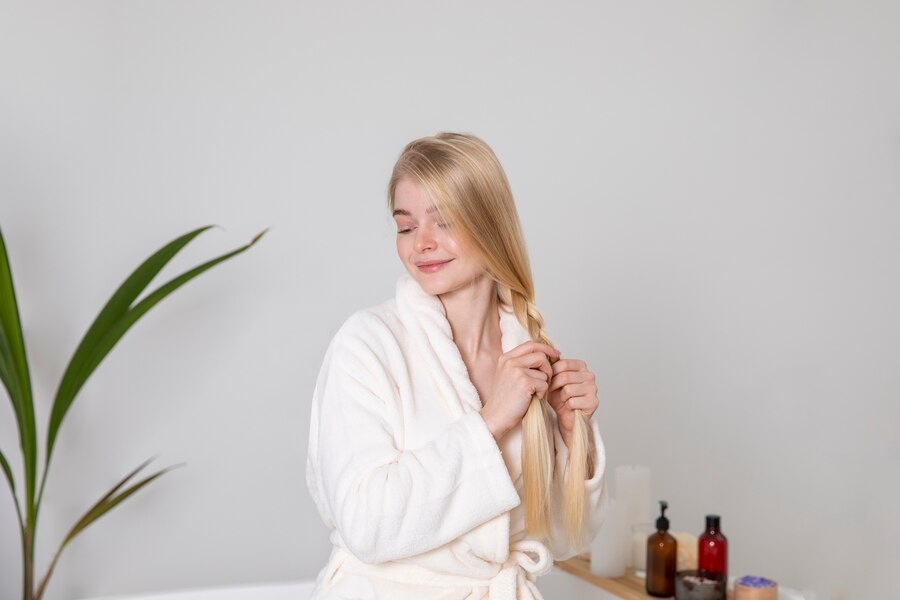Hair care isn’t just about aesthetics; it’s a crucial aspect of our health and well-being. Regularly washing and conditioning your hair can remove harmful pollutants and chemicals that your hair and scalp are exposed to daily. Taking care of your hair is a journey beyond the physical aspects. It’s a form of self-care and self-expression. Each time you invest in your hair care routine, you also invest in your self-confidence and mental well-being. Beautiful hair can make you feel empowered and ready to take on any challenge the day might throw at you. For those experiencing thinning or shedding, incorporating trusted hair regrowth products into your routine can support overall hair vitality and appearance.
Understanding Your Hair Type
Importance of Identifying Your Hair Type
Understanding your hair type is fundamental to effective hair care. Different hair types, such as straight, wavy, curly, and coily, require different care routines and products. For instance, curly hair tends to be drier and more prone to frizz, necessitating heavier moisturizing products and gentler handling. On the other hand, straight hair can become oily more quickly and may benefit from lighter formulations. Dermatologists emphasize the importance of tailoring your hair care routine to your specific hair type for optimal results.
Hair Types and Their Unique Needs
Straight Hair
- Characteristics: Naturally smooth but tends to become oily quickly.
- Care Tips: Use lightweight, volumizing products. Avoid heavy oils and butter that can weigh hair down. Shampoo regularly to control oil.
Wavy Hair
- Characteristics: Lies between straight and curly and may be susceptible to frizz.
- Care Tips: Use anti-frizz serums and moisturizing shampoos. Avoid overwashing to maintain natural oils.
Curly Hair
- Characteristics: Naturally dry, prone to frizz and tangles.
- Care Tips: Use deep conditioners and leave-in treatments. Detangle gently with a wide-tooth comb.
Coily Hair
- Characteristics: Very tight curls, highly prone to dryness and shrinkage.
- Care Tips: Use heavy moisturizers and oils. Protect hair with styles like braids or twists to retain moisture.
Impact of Styling on Hair Health
Heat Styling: Risks and Precautions
Overusing heat-styling tools like blow dryers, flat irons, and curling wands can cause significant damage, leading to dryness and breakage. It’s essential to use these tools sparingly and always apply a heat protectant spray beforehand. The research found that heat protectants can reduce damage by forming a barrier over the hair cuticle, thereby maintaining moisture and preventing split ends.
Protective Styling Techniques
- Low Manipulation Styles: Braids, twists, and buns that reduce the need for daily styling.
- Heat-Free Styling: Air drying, braiding wet hair for waves, or using foam rollers.
- Regular Trims: Keeping ends healthy by trimming every 6-8 weeks to prevent split ends from traveling up the hair shaft.
Importance of Scalp Care
Benefits of a Healthy Scalp
A healthy scalp is the foundation for healthy hair growth. Regularly exfoliating the scalp can remove dead skin cells and product buildup, promoting better circulation and nutrient delivery to the hair follicles. Studies have found that individuals who incorporate scalp exfoliation into their hair care routines experience increased hair thickness and reduced dandruff.
Scalp Care Routine
- Regular Cleansing: Using a gentle shampoo to keep the scalp clean.
- Exfoliation: Employ a scalp scrub or brush weekly to remove accumulated buildup.
- Moisturization: Applying lightweight oils or scalp treatments to keep the scalp hydrated.
- Massaging: Stimulating blood flow with regular scalp massages.
Role of Nutrition in Hair Health
Essential Nutrients for Hair Growth
Hair health is closely linked to diet and nutrition. A balanced diet rich in essential nutrients can promote strong and vibrant hair.
Protein
- Importance: Hair consists of a protein known as keratin. Sufficient protein intake is essential for promoting hair growth and maintaining its strength.
- Sources: Lean meats, fish, eggs, beans, and nuts are excellent protein sources.
Vitamins
- Vitamin A: Supports collagen production and enhances iron absorption.
- Sources: Carrots, sweet potatoes, spinach.
- Vitamin C: Aids in collagen production and iron absorption.
- Sources: Citrus fruits, strawberries, bell peppers.
- Vitamin D: Linked to hair follicle health.
- Sources: Fatty fish, fortified foods, sunlight exposure.
- Vitamin E: An antioxidant that supports scalp health.
- Sources: Nuts, seeds, green leafy vegetables.
Minerals
- Iron: Crucial for delivering oxygen to hair follicles.
- Sources: Red meat, spinach, lentils.
- Zinc: Helps with tissue growth and repair.
- Sources: Oysters, beef, pumpkin seeds.
- Omega-3 Fatty Acids: Promote scalp health and shine.
- Sources: Fatty fish, flaxseeds, walnuts.
Influence of Lifestyle on Hair Health
Stress and Hair Health
Persistent stress can interrupt the hair growth cycle, resulting in conditions such as telogen effluvium, where hair starts shedding earlier than usual. Incorporating stress-reducing practices such as yoga, meditation, and regular physical activity can significantly improve hair care health. Individuals who practiced mindfulness and stress management techniques reported less hair shedding and improved hair density.
Sleep and Hair Health
Poor sleep can affect hair growth and quality. Ensuring 7-9 hours of quality sleep each night can promote hair vitality.
Exercise and Hair Health
Regular physical activity improves circulation, which helps deliver essential nutrients to hair follicles. Activities like jogging, swimming, and yoga can contribute to healthier hair.
DIY Hair Care Remedies
Natural Treatments for Hair Health
Coconut Oil
- Benefits: Deep conditioning reduces protein loss and prevents breakage.
- Application: Warm the oil and apply it from the roots to the tips. Leave at least 30 minutes before washing out.
Aloe Vera
- Benefits: Moisturizes the scalp, reduces dandruff, and promotes hair growth.
Apple Cider Vinegar
- Benefits: Balances scalp pH, removes buildup, adds shine.
- Application: Dilute with water and use as a final rinse after shampooing.
Honey
- Benefits: Natural humectant, retains moisture, softens hair.
- Application: Mix with conditioner or apply directly to hair. Leave 20 minutes before rinsing.
Homemade Hair Masks
Avocado and Banana Mask
- Ingredients: 1 ripe avocado, one ripe banana, and one tablespoon of olive oil.
- Benefits: Deeply moisturizes and nourishes hair.
- Application: Blend ingredients until smooth and apply to hair. Leave 30 minutes before rinsing.
Yogurt and Egg Mask
- Ingredients: 1 cup plain yogurt, one egg.
- Benefits: Protein-rich treatment for strengthening hair.
- Application: Mix ingredients and apply to hair. Leave 20 minutes before rinsing with cool water.
Professional Hair Care Tips
Seeking Expert Advice
Consulting with a dermatologist or a trichologist (hair and scalp specialist) can provide personalized hair care advice based on your needs and conditions. They can offer treatments for hair loss, scalp issues, and other hair-related problems.
Salon Treatments for Hair Health
- Deep Conditioning: Professional deep conditioning treatments can penetrate deeper than over-the-counter products, providing intense hydration.
- Scalp Treatments: Salons offer treatments that exfoliate and nourish the scalp.
- Keratin Treatments: Smooth and strengthen hair, reducing frizz and improving manageability.
Conclusion
Healthy hair care is a multifaceted journey that involves understanding your hair type, adopting the proper styling techniques, focusing on scalp health, maintaining a balanced diet, and integrating stress-reducing practices. By tailoring your hair care routine to your unique needs and following expert advice, you can achieve vibrant, beautiful hair that reflects your overall well-being. The journey of hair care is a form of self-expression and self-care, and it is about enjoying the confidence and empowerment that come with healthy, radiant locks.

